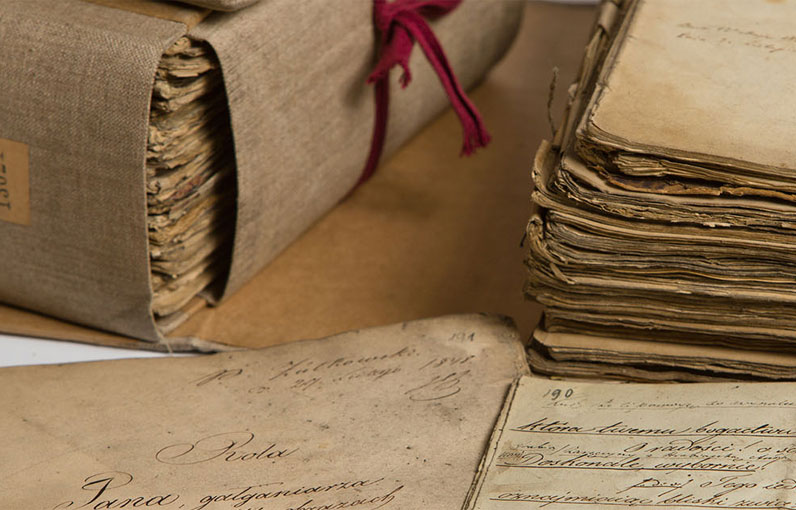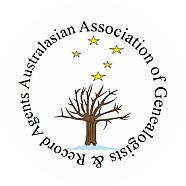By Rachel Croucher
Are you considering taking your passion for family history research to the next level? If yes, ask yourself the following: am I ready and what is required? To hold yourself out to be a professional genealogist or record agent, you must have gained competency in a specific skill set and know how to run a small business. Although there is no precise formula for achieving these aims, an understanding of the professional landscape for genealogists in Australia will help you kickstart your journey.
Beyond a genuine passion for unravelling family histories, aspiring professional genealogists and record agents should prioritise acquiring a comprehensive skill set that encompasses archival research, data analysis, and proficiency in genealogical charting. Australia offers various educational programs and certifications tailored to genealogy, providing opportunities to refine your expertise. Networking within the genealogical community can also open doors to valuable mentorships and collaborations, facilitating professional growth.
Genealogical Skills and Knowledge
Professional genealogists and record agents are expected to have skills, experience, and knowledge in various areas. Essential skills for the practice of genealogy are illustrated in AAGRA’s membership criteria:
- Business skills
- Good English expression
- Correct citations
- Thorough understanding of sources
- Careful handling of original documents
- Appropriate use of sources
- Correct analysis of information
- Lateral range of sources
- Accepted genealogical charting
- High standard of manuscript preparation
Business skills are vital for client management, budgeting, and effective marketing. Good English expression is crucial for delivering clear presentations and accurately conveying research findings. Correct citations are signals of credible research and underline the genealogist’s commitment to accuracy. A thorough understanding of sources is essential to evaluate their reliability and relevance in constructing reliable genealogies and family histories. The careful handling of original documents is paramount for preserving historical artefacts and preventing damage, thus safeguarding invaluable genealogical information for future generations. Appropriate use of sources and correct information analysis is crucial for crafting precise and credible genealogical reports.
A lateral range of sources expands research possibilities, revealing hidden connections and enriching the depth of familial histories. Adherence to accepted genealogical charting practices ensures standardised communication within the genealogy community and clarity for consumers. Finally, a high standard of manuscript preparation reflects professionalism and attention to detail, establishing trust with clients and peers. Together, these skills and knowledge contribute to the preservation and accurate representation of family histories and thus form a solid foundation for a successful career as a genealogist.
Business Skills
Professional genealogy involves more than just researching family trees. Professionals must also have strong time management, communication, and organisational skills. Business skills may have been acquired from running your own business or from various employee or volunteer roles, both past and present. Let us know on your application about any customer service, communication, marketing or bookkeeping skills you may have. It’s not necessary to have all skills as some can be learnt or outsourced, however we need to know you have enough skills to provide a professional service. Providing your ABN (in your personal name or business name) as proof of being a registered business would also be advantageous.
Websites
- How to Start a Business in Australia <https://www.myob.com/au/resources/guides/starting-a-business/start-business>
- Guide to Starting a Business <https://business.gov.au/guide/starting>
- Starting a Business Checklist <https://business.gov.au/planning/new-businesses/starting-a-business-checklist>.
- New Enterprise Incentive Scheme <https://www.dewr.gov.au/new-business-assistance-neis>.
Education
There is no formal qualification required to become a professional genealogist. However, associations representing professional genealogists and record agents, such as AAGRA, require proof of an applicant’s competence in their chosen category of genealogist or record agent. This can be demonstrated through the presentation of samples of work, manuscripts, published articles, and genealogies. Moreover, continuing education is an important part of any genealogical career. The following educational offerings are available in Australia:
- The University of Tasmania offers an Undergraduate Certificate in Family History and a Diploma of Family History (accredited) <https://www.utas.edu.au/study/undergraduate/family-history>.
- The University of New England offers graduate and advanced diplomas in Local, Family, and Applied History (accredited) <https://www.une.edu.au/about-une/faculty-of-humanities-arts-social-sciences-and-education/hass/study/archaeology-classics-ancient-history-and-history/local-family-and-applied-history>.
- The Society of Australian Genealogists offers a Certificate of Genealogical Research and a Diploma In Family Historical Studies (non-accredited) <https://www.sag.org.au/StudyOnlineWithUs>.

